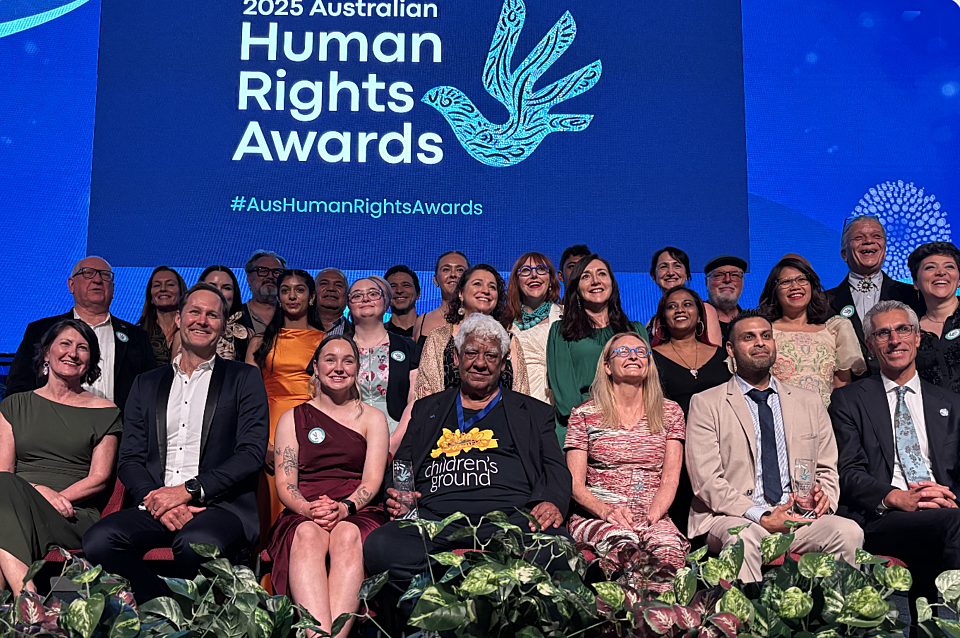
Australia’s honours system: a mirror to our blindness
Posted on 28 Jan 2026
The 2026 Australia Day Honours list delivered a sobering reality check. After reaching gender…
Posted on 05 Sep 2023
By Sue Woodward, ACNC Commissioner

Benefits such as income tax concessions have helped drive a surge in charity registration applications. Not all of them will be successful, writes ACNC Commissioner Sue Woodward.
In recent months the Australian Charities and Not-for-profits Commission (ACNC) has received many more charity registration applications than usual.
It seems lots of not-for-profit organisations (NFPs) are looking to register as charities, attracted to benefits such as access to income tax exemption and other concessions.
However, many of these NFPs won’t get registered.
Let me explain this because I hate the thought of people putting in time and effort and not being successful, especially when there are simple things they can do, including understanding whether they are eligible for ACNC registration or not.
Our annual report (to be published in October) will show that in 2022–23 our registration team processed 5,535 charity registration applications.
However, we registered only around half of these applicants – 2,652 – as new charities.
Data from the previous financial year is similar: 6,015 applications were processed, with only 3,152 registered.
There was a mix of reasons why applications were unsuccessful.
Some were incomplete. Some applications were withdrawn, with organisations realising they did not meet requirements, following discussions with our team.
Some were refused: the organisation’s purposes were not charitable or not enough information was provided to enable us to make a decision.
It is vital registration applications are fully and properly completed to ensure a timely assessment.
Common errors include:

We already publish a range of resources to help people understand what is required when applying for charity registration, and about the ongoing requirement to maintain registration (it’s important to understand this before deciding whether to register).
We continue to build on these resources.
For example, we recently updated our Health Promotion Charity Commissioner’s Interpretation Statement. These statements explain how we interpret law in particular areas.
I am pleased that changes recently announced by the federal government will allow us to provide much better information about our registration decisions. It enables us to publish summaries of real (deidentified) registration decisions.
Some summaries will set out the reasons we registered an organisation, and some will set out the reasons we refused an application for charity registration. The decisions will be real; however, the name of the applicant and any identifying details will be removed.
These summaries will help potential applicants and their professional advisers better understand charity law and will support groups to submit better registration applications.
I think this new work will provide more clarity for the NFP and charity sector; I know it can be a very technical area to understand. I also believe it will boost public confidence in the sector by illustrating our thorough and consistent regulatory decision-making process. It helps us be a more transparent regulator.
While we are developing these new resources, please remember we have a lot of guidance for applicants on our website. For example, demonstrating what your organisation aims to achieve – in other words, its charitable purpose – is critical. Staff are also ready to explain and support you if you have any further queries.
"It is vital registration applications are fully and properly completed to ensure a timely assessment."
The top tips I can offer to those applying to be registered as an ACNC charity include these:
For example, your organistion might be structured as a trust, an incorporated association or a co-operative. (Individuals, sole traders, government entities and partnerships cannot be registered charities.)
If applying to be registered as a charity sub-type ̶ such as promoting human rights or advancing the natural environment ̶ you need to make sure your organisation’s governing document reflects that sub-type.
If you operate overseas, you must comply with the ACNC’s External Conduct Standards.
We have free online short courses which would be of great value for any organisation that aspires to become a registered ACNC charity: “How to become an ACNC registered charity” provides a detailed look at the requirements for gaining ACNC registration and examines the 14 subtypes to help you assess which is the best fit for your organisation.
Finally, a note about another significant new reform. The government proposes to develop a Bill to support reforms to the ACNC Act to provide greater transparency about ACNC investigations, while continuing to provide due process for registered charities.
To enable public disclosure of information about any ACNC investigation, law change is required. Public consultations on the proposed legislation will provide the opportunity for charities, key sector stakeholders and anyone else with an interest to have their say.
Our current regulatory approach is designed to support the principles of procedural fairness where a concern has been raised with us.
The changes to the law will aim to balance supporting public trust and confidence that very serious allegations are being investigated with continuing to provide charities with due process.

Posted on 28 Jan 2026
The 2026 Australia Day Honours list delivered a sobering reality check. After reaching gender…

Posted on 28 Jan 2026
This year’s Adelaide Writers’ Week began with the cancellation of a talk by Palestinian-Australian…

Posted on 28 Jan 2026
The scope and breadth of natural disasters facing Australia right now can feel overwhelming.

Posted on 28 Jan 2026
The headlines don’t last long. The fire roars, the news is dominated by images of smouldering car…

Posted on 28 Jan 2026
French-Canadian Jimmy Pelletier, who lives with paraplegia, is six and a half months into a…

Posted on 28 Jan 2026
Charities Minister Andrew Leigh says he expects to see more demand than ever for the work of…

Posted on 17 Dec 2025
The founding chair of the ambitious systems-change not-for-profit organisation Children’s Ground,…

Posted on 17 Dec 2025
As we head into the holiday period, the number of Australians battling homelessness has hit crisis…

Posted on 17 Dec 2025
Posturing by the US president about Europe's immigration policies, even warnings of future…

Posted on 17 Dec 2025
For this final Community Advocate edition of the year, we reviewed a whole year’s worth of stories…

Posted on 16 Dec 2025
Lex Lynch spent more than two decades in the climate change and renewables field before last year…

Posted on 16 Dec 2025
As Australia prepares to welcome its one millionth refugee, human rights advocate and former…